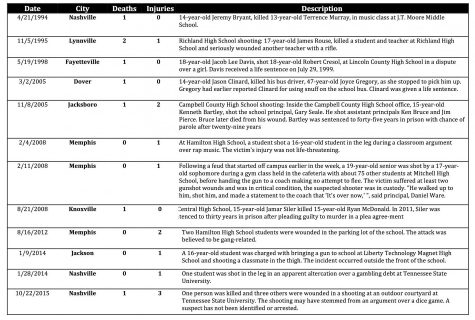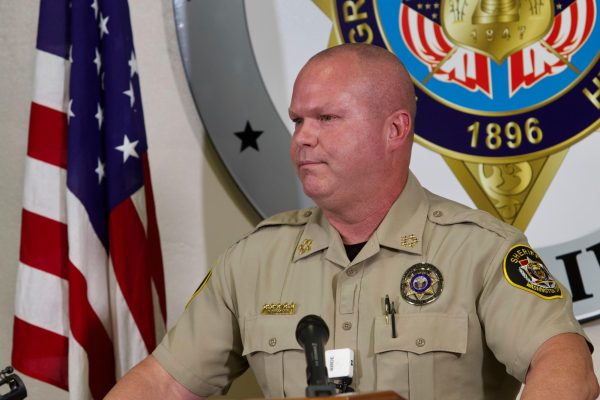The “Tonight Show” host offered similar praise, saying, “You are not just the future — you are the present. Keep changing the world. Keep making us proud.”
In a video of his address, Fallon joked that the students “won’t be classmates any more. You’ll be adults who will Facebook search each other at 2 in the morning for the next 10 years.”
Turning more serious, he said: “First thing is this: When something feels hard, remember that it gets better. Choose to move forward. Don’t let anything stop you.” He thanked them for their bravery and activism.
While the Broward County School System asked that the media and press respect this emotional moment for all of the Majorie Stoneman Douglas High School students, family and community, the district has been forth coming in publishing, via Twitter, steps that will be taken to make every school in the district safer for the upcoming year beginning with the hiring of an independent risk assessment agency that will enable each school to know where their individual strengths and weaknesses are. “The independent security firm will be assessing the District’s policies, trainings, and security staffing models to provide security recommendations for security enhancements.”

Tennessee recently enacted the S.A.V.E. Act or the Schools Against Violence in Education [Tenn. Code Ann. § 49-6-(801-814)]
The SAVE Act establishes “specific and consistent requirements for L.E.As (Local Education Agencies) in providing a safe school environment. The act also establishes a state-level safety team to provide guidance to school districts in their efforts to address, plan, and implement a comprehensive school safety planning strategy.”
While there hasn’t been a mass school shooting in Tennessee since 2014, there is definitely a reason to be concerned about the growing number of shooting events happening on school campuses around the country.
 The SAVE Act Compliance Instrument developed by the state of Tennessee provides a framework for emergency planning aimed at bringing together all available resources and stakeholders to provide for the safety of all of Tennessee’s students.
The SAVE Act Compliance Instrument developed by the state of Tennessee provides a framework for emergency planning aimed at bringing together all available resources and stakeholders to provide for the safety of all of Tennessee’s students.
The Guide for Developing High-Quality School Emergency Operation Plans developed by FEMA, local emergency operational management organizations and the Department of Education is designed to provide LEAs guidelines to keep their children safe from threats (human-caused emergencies such as crime and violence) and hazards (natural disasters, disease outbreaks, and accidents).
In collaboration with their local government and community partners, schools can take steps to plan for these potential emergencies through the creation of a school Emergency Operations Plan (school EOP).
The guide is organized in four sections:
- The principles of school emergency management planning.
- A process for developing, implementing, and continually refining a school EOP with community partners (e.g., first responders and emergency management personnel) at the school building level.
- A discussion of the form, function, and content of school EOPs.
- “A Closer Look,” which considers key topics that support school emergency planning, including addressing an active shooter, school climate, psychological first aid, and information-sharing.
Through prevention, protection, mitigation, response, and recovery the new SAVE Act is designed to offer schools more ways to protect students.












